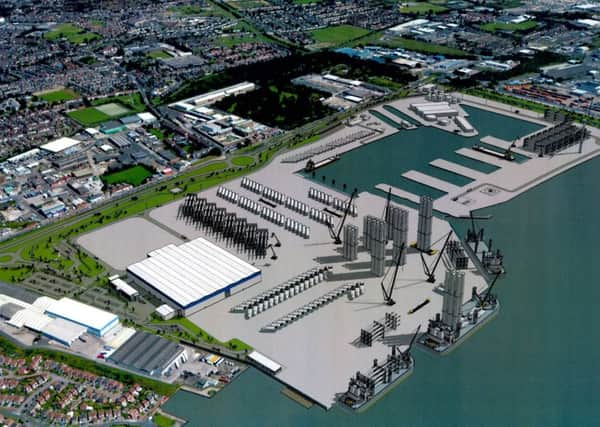Graham Stuart: Wind of change will lead to lower fuel bills


These days, however, there is a lesser-known but equally crucial budget in our political landscape – the Carbon Budget, which sets out how the Government plans to lower the UK’s greenhouse gas emissions to meet our long-term target of an 80 per cent cut in greenhouse emissions by 2050, compared to 1990 levels.
By the end of this month, Ministers must decide whether to accept the Committee on Climate Change’s recommendation that the Fifth Carbon Budget should set an emission cut of 57 per cent in 2028-32 from 1990 levels. This would be seven per cent below the figure for the Fourth Carbon Budget figure covering 2023-27. I believe it is essential that they do so.
Why does this matter so much?
Advertisement
Hide AdAdvertisement
Hide AdThe best available scientific evidence suggests we face an unacceptable environmental risk if we fail to reduce our emissions. Having accepted this, carbon budgets are important because they help ensure we switch to clean energy sources in the most cost- effective way for consumers.
If the Government sets clear parameters by accepting the Committee on Climate Change’s recommendation, they will give the energy sector the confidence it needs to innovate and invest.
The stakes are high because our energy system needs billions of pounds of investment. The Government has committed to phase out coal-fired power stations, and many older nuclear plants are also set to go offline over the next decade. This investment needs to be in low-carbon technologies, with natural gas (a cleaner fuel than coal) helping to bridge the gap.
There has already been a step-change in the deployment of renewable energy in the UK in recent years, with a three-fold increase between 2010 and 2015. The UK now boasts more offshore wind capacity than the rest of Europe combined.
Advertisement
Hide AdAdvertisement
Hide AdThese changes are part of a wider revolution. Last December I was in Paris for the UN climate summit at which all governments – including the United States – agreed to curb greenhouse gas emissions.
Critics argue that this change comes at unacceptable cost to the UK. Renewable technologies need subsidy and will likely continue to until at least the mid-2020s – although current conditions mean that all new power stations, even gas-fired ones, also require support.
Yet to focus solely on this misses the point that rolling out renewable technologies at scale is helping to drive the cost-curve downwards – today’s wind turbines generate significantly more power than their early predecessors.
In my area of East Yorkshire and in Hull, Siemens, Associated British Ports and Dong Energy are investing billions in wind turbine manufacture and installation, creating thousands of jobs.
Advertisement
Hide AdAdvertisement
Hide AdFinally, and contrary to received wisdom, renewable technologies are helping to reduce the wholesale cost of our energy itself. When the National Grid looks to meet demand, there are multiple combinations of generators that could be used.
It is logical to opt for the cheapest generators available at any given time – which, when they are generating, are renewables which need no fuel and have low maintenance costs. Given that the price paid to all sources generating is equal to the highest cost of all them, renewable technologies are keeping prices down by displacing other, more costly alternatives.
Renewable electricity provider Good Energy has calculated that wind and solar generators reduced our electricity costs in this way by £1.55bn in 2014 alone – more than halving the net subsidy they received to £1.1bn.
Not only is the premium we’re paying for renewable energy lower than we think, therefore, but we can also look forward to cheaper prices in the medium term. Understood in this light, and factoring in associated benefits like energy security, we need to regard the Fifth Carbon Budget not as a necessary evil, but as an opportunity to be embraced.
Advertisement
Hide AdAdvertisement
Hide AdAs a country, we have both the geography and the skills base to benefit from the low carbon technologies that will power the century ahead. What we need now is a clear sense of direction – and it is for Ministers to take the lead on this later this month.
Graham Stuart is the Conservative MP for Beverley and Holderness.